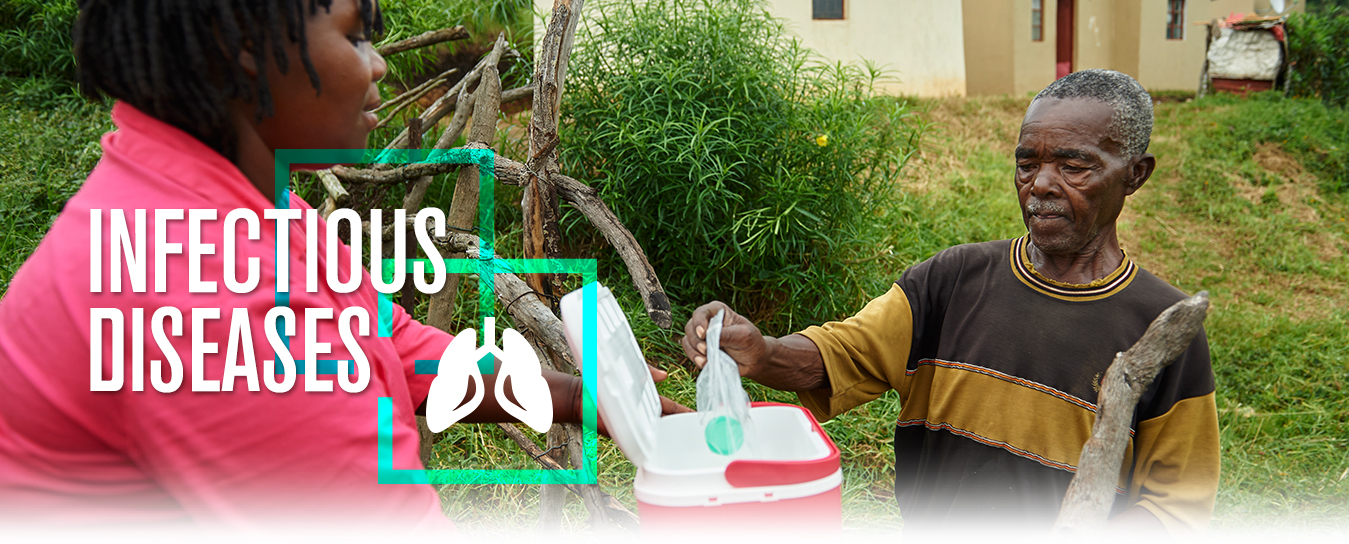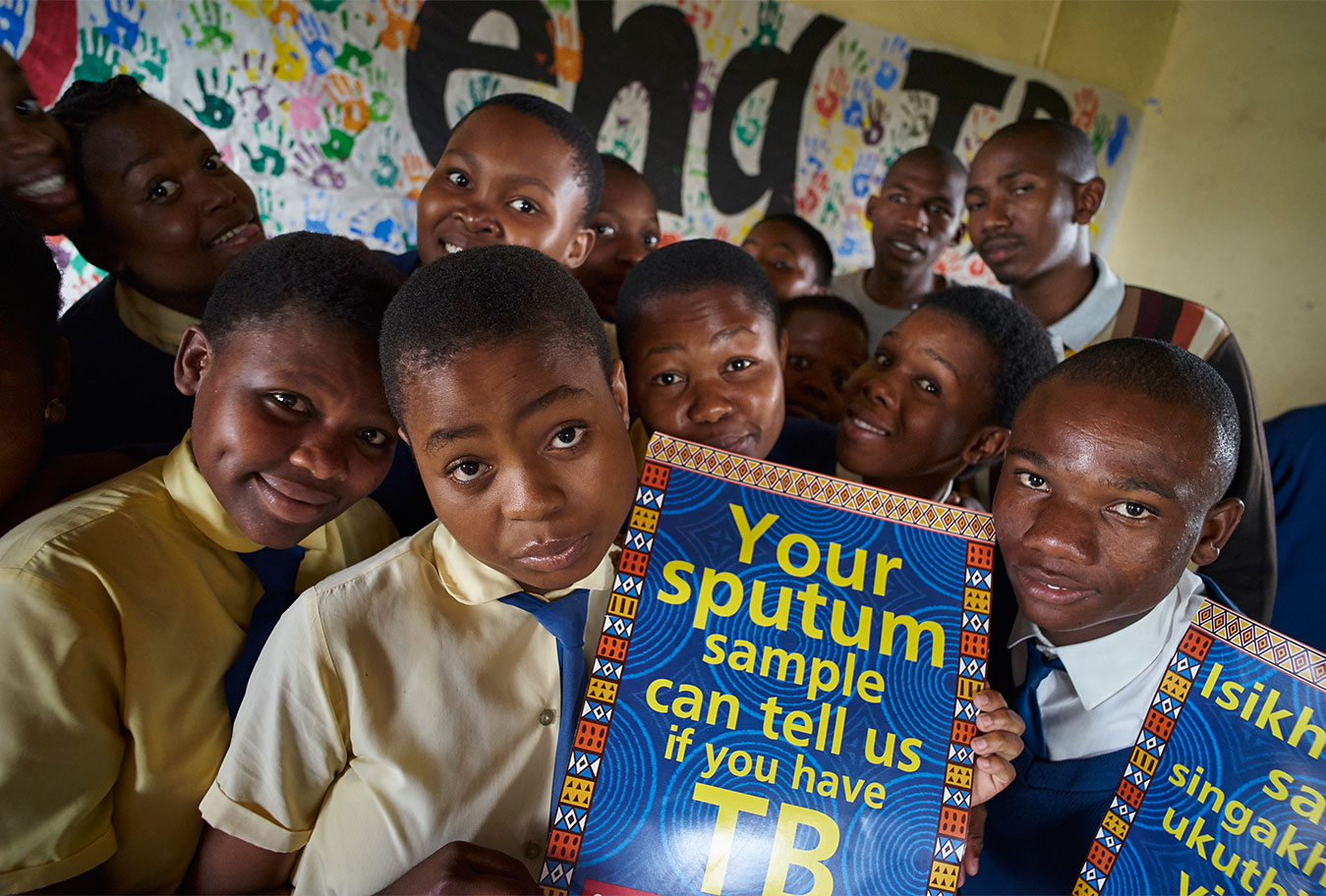
1
2
3
4
5
6
7
8
9
10
Current treatments for MDR-TB are long and ineffective – lasting up to 24 months, with only a 56% success rate.
MDT-TB patients often suffer terrible and traumatic side effects, including acute psychosis and permanent deafness, all the while ingesting up to 14,000 pills and some have to endure months of painful, daily injections.
The costliness, difficulty and length of current regimens make them hard to implement in many high-burden countries.
To address the problem, two clinical trials, endTB and endTB-Q, use the first TB drugs developed in almost 50 years — bedaquiline and delamanid — to find radically shorter (6 or 9 months), more tolerable, injection-free treatments for MDR-TB patients.1
The endTB and endTB-Q studies are randomized, controlled, open label, non-inferiority, Phase III clinical trials.
As part of a larger multi-country initiative, IRD is partnering with Partners In Health (PIH), and Médecins Sans Frontières (MSF), and financial partner UNITAID, to conduct these clinical trials in Pakistan, at the Indus Hospital and Health Network (IHHN) in Karachi, and Institute of Chest Diseases (ICDs), Kotri in collaboration with the Government of Sindh Province.
These clinical trials aim to shorten treatments from 18 – 24 months to only 9 months, eliminating injectables with only all oral regimen(s). The trials also aim to reduce toxicity profile, treatment compliance and adherence, and improve the overall efficacy of treatment for the patients.
Additionally, Bayesian adaptive randomization study is used in the trial, allowing real time information on treatment response, and to adjust the probability of randomization and the arm with better treatment responses.
As of 3rd July 2021, Pakistan had enrolled 81 out of 98 patients of target for their endTB targets, with enrollment to close by November 2021. Pakistan had enrolled 35 out of 115 patients for their endTB-Q targets and the enrollment is expected to close by March 2022. Thus far, 21 patients on endTB and 7 patients on endTB-Q have completed treatment.
These results will help in the expansion of access to treatment beyond 23% of MDR-TB patients reported to have received any treatment with second-line drugs.2
The study goals may also improve treatment compliance, with a greatly reduced frequency of loss-to-follow-up of patients on treatment.
This frequency was most recently estimated at 16% in the 2012 treatment cohort reported to WHO.3
Both these changes can have important epidemiological implications, which are reducing transmission of and morbidity and mortality from MDR-TB.
References:
[1] endTB http://www.endtb.org/clinical-trial
[2] World Health Organization. WHO treatment guidelines for drug-resistant tuberculosis 2016 update. (2016)
[3] World Health Organization. Global Tuberculosis Report 2015. (2015)

More information about the endTB Project can be accessed on www.endTB.org